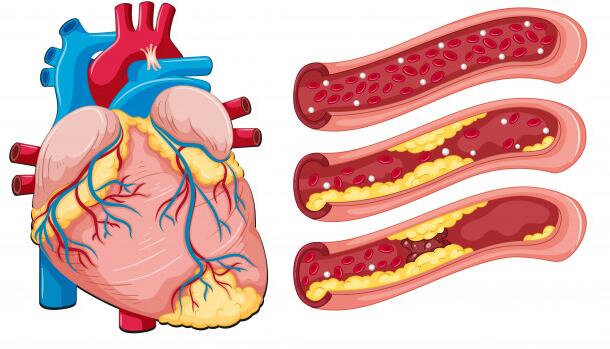Overview of Coronary Angioplasty
Blockage or narrowing of arteries and sudden heart failures are very common heart-related issues in the Indian population and we usually refer to them as “Coronary Artery Disease or Coronary Heart Disease.”
To remove such blockages of arteries or wide open the arteries, doctors use the procedure known as Coronary Angioplasty, also known as Percutaneous Transluminal Coronary Angioplasty (PTCA) or Percutaneous Coronary Intervention (PCI).
The medical procedure uses a balloon catheter to open up the blocked artery ending in normal blood flow through the heart.
Who needs Coronary Angioplasty?
Coronary Angioplasty helps the restoration of blood flow to the heart by treating the buildup of all fatty plaques in the heart’s blood vessels. The buildup of the fatty plaques causing the blockage of arteries refers to a heart disease known as atherosclerosis.
A cardiologist might recommend a coronary angioplasty to you if:
- You are suffering from chest pain (angina), which is worsening day by day.
- You had a heart stroke in which the angioplasty often reduces the damage tends to affect the heart.
- You have tried every medication and have failed to improve your health.
Depending on the condition of your heart and blockage severity, doctors will either recommend angioplasty or bypass surgery.
Why is Coronary Angioplasty necessary?
Coronary Angioplasty is necessary for patients who suffer from mild blockages in arteries, and it is mandatory to get rid of the blockages as soon as possible for a consistent flow of blood to the heart. Angioplasty helps to treat the condition of angina, restoring the blood flow.
The build-up of fatty plaques can lead to significant heart stroke, which can be fatal if immediate medical treatment is not provided to the patient.
As soon as blockage in heart is discovered, a cardiologist might recommend going for an angioplasty before it leads to heart failure, as the blocked arteries may deprive the heart of adequate oxygen and blood, ultimately causing heart failure. Coronary angioplasty has proven to be a reliable treatment for heart blockages, and depending on the severity, the doctor can either remove the blockage using a stent or balloon catheter.
For more severe cases that can arise out of delays, coronary artery bypass surgery might need to be carried out which is a far more complicated procedure as compared to angioplasty.
The procedure of Coronary Angioplasty
During the coronary angioplasty, a flexible tube known as a catheter with a small inflatable balloon is inserted under the local anaesthesia. The catheter passes through the artery, and the balloon inflates, wide opening the artery, after which the doctor inserts a stent.
The stent pushes the walls of arteries squashing the fatty plaques against the arteries letting the blood freely flow to the heart. Then the balloon is deflated and removed from the artery, whereas the stent helps the artery to remain wide open.
The entire process takes the time of 30 minutes, which may increase depending on the number blockages present in the arteries. Also, the hospital stay is one-two days, and your recovery starts within a week of complete rest.
Make sure you visit the doctor regularly to examine the proper functioning of blood flow.
What to expect after the procedure?
After an angioplasty, the patient is kept under examination for a day to check whether the blood flow is healthy or not.
The patient has to lie down while recovering while the nurses and doctors keep a check on vitals like blood pressure and heart rate, along with paying close attention to arm and groin for bleeding. After a while, the patient is all set to walk, and within the course of one-two days, patients are typically discharged from the hospital.
How safe is Coronary Angioplasty?
Coronary angioplasty is the most common treatment preferred to get rid of the blockages. It is a minimally invasive procedure and is considered extremely safe.
Yet there exists some small risks and complications like:
- Bleeding from blood vessels
- Damage to vessels
- An allergic reaction
- The fluctuation of heartbeat
Every heart treatment has its own set of risks which most doctors and patients ought to discuss before taking the decision of undergoing surgery. At the end of the day, your cardiologist is the best judge of the right treatment.
Choose Ayu Health
Ayu Health is India’s most trusted network of hospitals. Our in-house experts are among the best in their field and will identify the most optimal heart treatment for the specific individual. Ayu Health are well equipped to carry out efficient coronary angioplasty for removing blockages. All our hospitals are accredited by NABH, India’s premier hospital accreditation authority. Ayu Health also provides the most advanced diagnostic procedures like CT Angiography for the doctors to make an informed choice.
Ayu Health provide fixed-price packages for an angioplasty procedure. With the fixed price packages, patients can have complete peace of mind on the procedure cost and focus on their recovery. We also provide easy financing options while accepting all major insurance schemes.
If you are looking for a leading doctor who can treat and perform effective coronary angioplasty and suggest the best methods to get the procedure just right for you in India, you can call +91 – 6366 100 800 or visit us at our website.
Our Hospital Locations
Cardiology Surgery Hospitals in Chandigarh | Cardiology Surgery Hospitals in Bangalore | Cardiology Surgery Hospitals in Jaipur | Cardiology Surgery Hospitals in NCR | Cardiology Surgery Hospitals in Hyderabad
Our Doctors
Cardiology Surgery Doctors in Chandigarh | Cardiology Surgery Doctors in Bangalore | Cardiology Surgery Doctors in Jaipur | Cardiology Surgery Doctors in NCR | Cardiology Surgery Doctors in Hyderabad




